Namenda (Admenta)10mg
Namenda 10 mg, also known as Admenta, is a medication primarily prescribed for Alzheimer’s disease. Its active ingredient, memantine, works by regulating glutamate activity in the brain, helping to improve memory and cognitive function.
Unlike other Alzheimer’s medications, Namenda targets a different neurotransmitter, providing a unique approach to symptom management.
By blocking excess glutamate activity, Namenda helps slow down the progression of cognitive decline and may also alleviate symptoms such as confusion and agitation.
With its distinctive mechanism of action and potential benefits, Namenda plays a valuable role in the treatment of Alzheimer’s disease, enhancing the quality of life for patients and caregivers.
Uses
Namenda 10 mg, or Admenta, is prescribed primarily for Alzheimer’s disease. Its active ingredient, memantine, uniquely targets glutamate activity in the brain, enhancing memory and cognitive function. Unlike other Alzheimer’s medications, Namenda offers a distinctive approach, slowing cognitive decline by blocking excess glutamate.
This medication helps manage symptoms such as confusion and agitation, improving overall quality of life for patients and caregivers. Namenda’s efficacy in addressing Alzheimer’s symptoms makes it an invaluable option in the treatment regimen, providing hope and support to those affected by this challenging neurodegenerative condition.
Available Strengths
How does It work?
Namenda 10 mg, also known as Admenta, operates uniquely in managing Alzheimer’s disease. Its active ingredient, memantine, regulates glutamate activity in the brain, a neurotransmitter associated with learning and memory.
Unlike other Alzheimer’s drugs, Namenda targets excessive glutamate, mitigating its harmful effects on brain cells. By blocking these excitatory signals, Namenda helps maintain cognitive function and slow the progression of Alzheimer’s symptoms.
This distinctive mechanism offers a complementary approach to existing treatments, providing hope for individuals affected by this debilitating condition. Namenda’s ability to modulate glutamate activity makes it a valuable asset in Alzheimer’s therapy, enhancing patient outcomes.
How to use Namenda 10 mg?
Namenda 10 mg, or Admenta, is typically administered orally once daily, with or without food. It’s essential to follow your healthcare provider’s instructions carefully. The dosage may be gradually increased over time to minimize side effects. Swallow the tablet whole with a glass of water; do not crush, chew, or break it.
It’s crucial to take Namenda regularly to experience its full benefits in managing Alzheimer’s symptoms. If you miss a dose, take it as soon as you remember, but skip it if it’s almost time for the next dose. Avoid doubling doses to compensate for missed ones.
Benefits
Namenda 10 mg, also known as Admenta, provides unparalleled benefits in managing Alzheimer’s disease. Through its unique mechanism of action targeting glutamate activity, it fosters memory retention and cognitive function improvement.
Unlike conventional treatments, Namenda effectively slows cognitive decline, enhancing patients’ daily functionality and quality of life.
By mitigating symptoms like confusion and agitation, it empowers individuals to maintain independence longer. This medication’s distinctive approach not only offers relief but also instills hope for patients and caregivers alike, navigating the complexities of Alzheimer’s. Namenda stands as a beacon of promise in the ongoing battle against this debilitating neurodegenerative disease.
Side effects
While Namenda 10 mg, or Admenta, offers significant benefits in Alzheimer’s management, it may also present certain side effects. These can include dizziness, headache, and gastrointestinal discomfort such as nausea or constipation.
Some individuals may experience fatigue or sleep disturbances. In rare cases, more severe side effects like hallucinations or confusion may occur.
It’s important to promptly report any concerning symptoms to your healthcare provider for evaluation. Additionally, interactions with other medications should be monitored closely to mitigate risks. Overall, while side effects are possible, the benefits of Namenda in managing Alzheimer’s symptoms often outweigh these potential drawbacks.
Precautions
When using Namenda 10 mg, or Admenta, it’s essential to observe specific precautions for optimal safety and effectiveness. Inform your healthcare provider about any existing medical conditions, including kidney problems or urinary tract infections, as well as any history of seizures.
Use caution when operating machinery or engaging in activities requiring mental alertness, as Namenda may cause dizziness or drowsiness.
Avoid abrupt discontinuation of the medication, as this can lead to worsening symptoms. Regular monitoring of kidney function may be necessary during treatment.
By adhering to these precautions and closely following your doctor’s guidance, you can ensure the best possible outcomes with Namenda therapy.
Frequently Asked Questions
Can Namenda 10 mg be used alone for Alzheimer’s treatment?
Namenda is often prescribed as monotherapy for Alzheimer’s disease, especially in patients who cannot tolerate other medications or have contraindications to them.
However, it can also be used in combination with other Alzheimer’s medications, such as cholinesterase inhibitors, for enhanced efficacy.
How long does it take to see the effects of Namenda 10 mg?
The onset of Namenda’s effects can vary from person to person. Some individuals may notice improvements in cognitive function and symptom management within a few weeks of starting treatment, while for others, it may take several months to observe significant changes.
Can Namenda 10 mg be used in patients with mild cognitive impairment?
While Namenda is primarily indicated for moderate to severe Alzheimer’s disease, some healthcare providers may prescribe it off-label for individuals with mild cognitive impairment (MCI) who are experiencing significant memory and cognitive decline. However, the evidence supporting its use in this population is limited, and its efficacy may vary.
Are there any dietary restrictions while taking Namenda 10 mg?
There are no specific dietary restrictions associated with Namenda use. However, it’s essential to maintain a balanced diet and stay hydrated, as these factors can contribute to overall health and well-being, which may indirectly affect treatment outcomes.
Can Namenda 10 mg be used in patients with other neurological conditions?
Namenda is primarily indicated for Alzheimer’s disease, but it may also be prescribed off-label for other neurological conditions characterized by cognitive impairment, such as vascular dementia or Parkinson’s disease dementia.
However, its use in these conditions should be carefully evaluated by a healthcare provider based on individual patient needs and clinical judgment.
Conclusion
Namenda 10mg, or Admenta, offers a distinctive approach to managing Alzheimer’s disease, providing targeted relief through its unique mechanism of action. While it may present side effects and require precautions, its benefits in slowing cognitive decline and improving quality of life are profound.
With careful monitoring and adherence to medical guidance, Namenda stands as a valuable asset in the fight against Alzheimer’s.

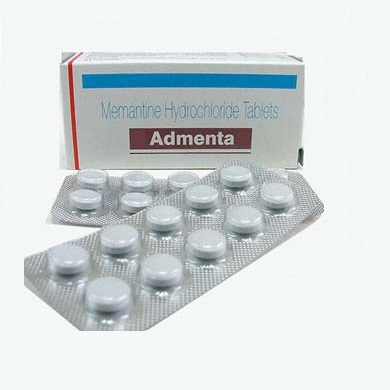
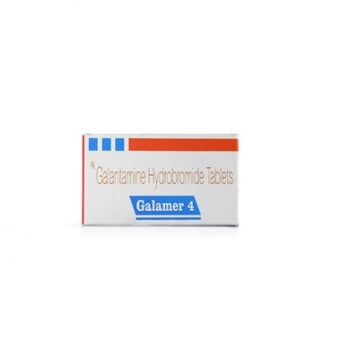
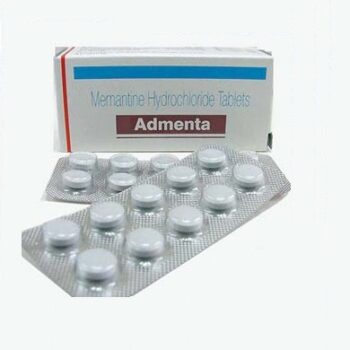
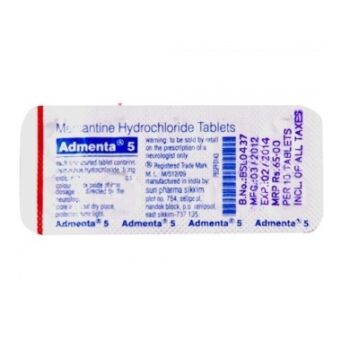
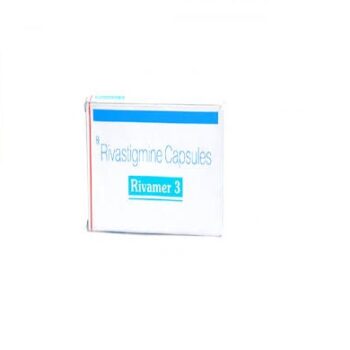
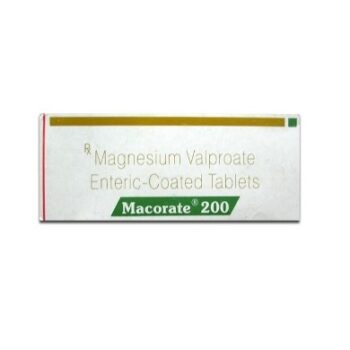



Reviews
There are no reviews yet.